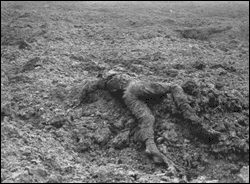 This past week was one of remembrance of things past. On the 11th hour of the 11th day of the 11th month in the year 1918, a horrible war came to an end-the first war fought with modern technology but still using human cannon fodder on a grand scale. Many, many millions died in the conflict known as World War I, most of them from Russia and the territories that would form the Soviet Union. So horrified were the survivors that 11 November has henceforth been recognised in many countries as a day to recall the cost of war; not just by honouring fallen soldiers, nurses, workers and civilians but by renouncing violence as a way to resolve conflicts.
This past week was one of remembrance of things past. On the 11th hour of the 11th day of the 11th month in the year 1918, a horrible war came to an end-the first war fought with modern technology but still using human cannon fodder on a grand scale. Many, many millions died in the conflict known as World War I, most of them from Russia and the territories that would form the Soviet Union. So horrified were the survivors that 11 November has henceforth been recognised in many countries as a day to recall the cost of war; not just by honouring fallen soldiers, nurses, workers and civilians but by renouncing violence as a way to resolve conflicts. Of course, being human means lessons are rarely learnt from history. We repeat our mistakes, and often modernise them. The carnage and tragedy of Europe's first horrible war of the 20th century was soon surpassed by the genocide and cynicism of the second. Not just on the German side either, although few would argue that the Nazis were not evil incarnate. World War II saw the British, American and other Allied powers engaged in the deliberate targeting of civilians as a tactic to discourage German war planners from their own bombing campaigns. Overshadowing even the battlefield and urban bombfield casualties of that war, though, were the victims of Nazi hatred-Jews, Gypsies, homosexuals, Poles and other groups that somehow offended Hitler.
Europe's second descent into barbarism of the last century ended in victory for the anti-Nazi forces and a great outpouring of collectivist human behaviour on a scale the world hasn't seen since. American largesse rebuilt the bomb shattered lives of Europeans, sparing no expense and pouring resources into defeated Germany, every bit as much as victorious England. And the British soldiers, who survived and came home heroes, threw their efforts into rebuilding their country politically. They voted for a socialist political party, Labour, that promised and delivered on some of the most sweeping economic reforms outside of Bolshevik Russia. Universal health care, unemployment insurance and protection for the weakest in society, these were seen as the hallmarks of the new, post war civilisation.
In effect, the war dead were being honoured by attempts to forge a consensus against poverty and ignorance, to move away from corporate and elite exploitation of the poor. Yet the platitudes of brotherhood and cooperation that kept the anti-Nazi alliance together collapsed as military technology proceeded apace, delivering the worst weapons of all time-atomic bombs-to both America and Russia. Anti-communist paranoia took hold of the United States, not entirely without good reason, as Soviet expansionism clapped shackles around Eastern Europe. China too, for its own reasons, followed a Communist path.
The Korean War entrenched fear, anger and cynical exploitative political behavior in Western countries. Senator Joseph McCarthy began his infamous witchhunt in the United States and President Eisenhower's infamous 'military industrial complex' easily bested the forces of peace and reason that once seemed ascendant. A new decade, the 1960s, saw America enter a new, and later disastrous, war in Southeast Asia. A prosperous country sent its young into battle despite the misgivings of its friends and allies around the world. The US still bears the scars of its intervention in Vietnam, and as for the people of that region, one statistic will suffice to paint the picture. More bombs were dropped by US bombers on the sparsely populated backwater of Laos than on all of Europe by all of the aircraft that flew in World War II. To this day, the Laotian countryside is still the most dangerous minefield on the planet.
Now, in the week of Remembrance 2003, a new millennium, the aftermath of an unprecedented economic boom in most Western economies, technology once again resurgent and liberating, literacy, healthcare and other development indicators largely improving, where do we stand? Why, we're once again at war, often it seems against chimerical enemies who barely exist, but make no mistake, it's war. War for war's sake, perpetual war, war, war, war. A grim week of remembrance then, of the stark fact that we seemed doomed to repeat our mistakes. Again and again and again.



